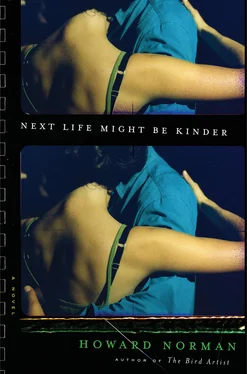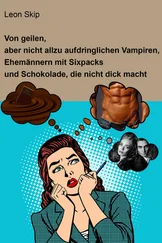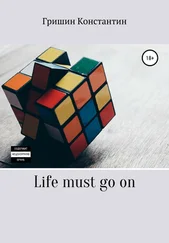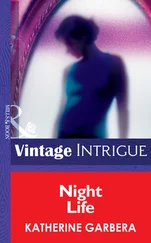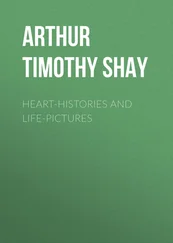“My home away from home.”
“Emily Kalman looks nothing like Elizabeth. And why should she, anyway? The movie’s not about Elizabeth — you said as much yourself. It’s about Istvakson’s romance with a murdered woman. You yourself said that, remember? Not to worry, there, Miss Svetgartot. They’ve cast a decent actress, and I’ll never see this movie, but if I did, I wouldn’t be reminded of my wife. Not a chance.”
Lily Svetgartot said, “There’s no way you’ll speak with her, I take it.”
I took her coffee cup and emptied it into the sink. I held her coat open for her. She slipped into the coat and left my cottage. Through the window I watched her get into her car and drive across the road. I watched her and Emily Kalman go to Philip and Cynthia’s front door. I think I said, “My God, she looks so much like Lizzy.”
Lying back on propped-up pillows in bed, I thought hard about why, exactly, anyone from the movie company would need to speak with me. I mean, speak with me for any reason. Lily Svetgartot had said, “Mr. Istvakson’s not happy with the ending. He’s rewritten it twenty times. Thirty. He can’t finish.” It occurred to me with alarm that he wanted to know how Elizabeth died. Not the fact that she was shot; everyone knew that. No, no, no, he wanted to know what only Elizabeth knew. He wanted that for his ending. Otherwise, he’d have to make it up — his research couldn’t touch that. Dark, confused thoughts came in an eddy.
I moved to the kitchen table, took out my notebook (not the one Nissensen gave me) and a pencil, and wrote two new sentences for my novel. Then I crossed out one sentence and half the words in the other sentence. I poured a shot glass of whiskey, held the glass out at arm’s length, toasted, “To a very successful three minutes of writing!” and tossed back the drink. Then I put on my coat and walked across the road. At the beach, I looked back at Philip and Cynthia’s house. I saw Cynthia and Lily Svetgartot standing in the kitchen talking. I saw Philip at his desk in the second-floor study. I turned back to the beach and saw Elizabeth standing there.
Something was different. She wasn’t holding any books; she had no books to line up on the beach. I said, “Did you return the books to the library, Lizzy?”
As she walked toward me, she said, “Mr. Lattimore, it’s me, Emily. Emily Kalman. I was just getting some air.”
I immediately turned around, went back to the cottage, haphazardly packed my old-style suitcase, securing its straps and buckles, got in my truck, and drove to Halifax. I checked into the Haliburton House Inn — plenty of vacancies — and stayed there on Sunday and Monday night, until it was time to see Dr. Nissensen.
You and Your Husband Are Word People, Right?
WHILE IN HALIFAX for those three days, I went to the shoot on six different occasions, sometimes just hours apart. Obviously, I had no better judgment to work against. On my final visit, the crew was filming a scene in an inexpensive restaurant in which the character of Alfonse Padgett purchases a gun in a clandestine fashion from a bellman employed at a different hotel. I jotted down in my notebook, “The scene suggested murderous collusion among bellmen in the city of Halifax.” The two actors were wearing bellmen’s uniforms, implying they were both on break from their duties in their respective hotel lobbies. Quick exchange of words; they agree on financial terms. A revolver is passed from hand to hand beneath the table, in a paper bag printed with the name of a local pharmacy. When the other bellman then asked, “Why do you need a revolver anyway, Alfonse?” the reply he gets is “I’ve been spurned in love.” The other bellman laughs and shrugs. “So, you’re going to do yourself in, is that it?” he says. “‘Unrequited Love Drives Bellman Padgett to Drastic Measures,’ that’ll be the headline, eh?” Actor-Padgett fairly hisses, “No, she’s already done me in.” The actors went through twenty-two takes of this scene. When Istvakson said, “Still not perfect,” the cinematographer, Akutagawa, lost it.
Quite apart from anything else, the dramatic sufferings of Akutagawa were interesting to witness. I’d had some history on this fellow from the newspaper and from Lily Svetgartot, via Philip and Cynthia. One article in the Chronicle-Herald referred to him as “neurasthenic.” So I knew some things. He was fifty-five years of age. He had been an assistant cinematographer to the great Japanese director Kurosawa on one picture. He had been the chief cinematographer on five pictures to date, including one called To the City, written and directed by Istvakson; the two men had first met at a film festival in Oslo. To the City was a variation on a basic trope of Chekhov’s plays: people in the countryside endlessly debating whether to go to the city.
Istvakson’s version is set in Sweden. The characters, living together in dilapidated and cramped quarters, drink heavily and argue over whether to go to Stockholm to rob a bank or to fall back on the menial jobs they are sick and tired of and which make them feel useless and humiliated. I’d seen that movie. The dialogue is superficially Chekhovian. Plot-wise, the robbery is completely botched; one character dies in a spray of police bullets, the others are hauled off to prison. One critical accolade — or at least comment — about Akutagawa’s work on that film was “Never has claustrophobia been filmed with such nocturnal strangeness.” Indeed, most of the scenes leading up to the attempted bank heist take place at night, the result, I read, of Akutagawa’s creative insistence. According to Lily Svetgartot, Istvakson and Akutagawa had a grudging respect for, and yet basically hated, each other. A few months before the filming in Halifax began, Akutagawa was rumored to be “somewhere on the Sea of Japan, vacationing and thinking,” a journalistic euphemism, according to Lily Svetgartot, for confinement in a rest hospital.
Akutagawa was dressed in an expensive-looking black suit, a white shirt buttoned to the collar, and no tie, and he wore black high-top sneakers. He was about five feet six inches tall, very trim and well groomed, his considerably thick hair beautifully styled with a part on the left side. He seemed to move in staccato choreographies for even short distances — say, across a hotel lobby, quite arresting in itself. It occurred to me that he might suffer from chronic pain of some sort. Lily had told Philip, who told me, that Akutagawa was “never far away from his pharmacy.” Once, when she’d dropped off some script revisions, she counted no fewer than twelve vials of medications in his room at the Essex Hotel. She’d found the door slightly ajar, knocked, then went right in. “I even checked under the bed, but he wasn’t home,” Lily had said.
Now, after Istvakson expressed dissatisfaction with all the takes of that restaurant scene, Akutagawa cried out, “Istvakson, you are mad! Look at the takes, please. You will find an excellent one!” Istvakson said, “No, we need another take, now!” The two actor-bellmen got ready to do the scene again. But Akutagawa removed his suit jacket and began to tear at the sleeve with his teeth. “I bought you that suit!” Istvakson said, which sent a current of nervous laughter through the crew. Akutagawa then took a vial of pills from his trouser pocket, motioned to his assistant for a glass of water, emptied the vial into the palm of his hand, and shouted, “Twenty-two pills!” In other words, the number of takes of the scene was likely to kill him. He gulped down only one or two pills, however, and threw the rest at Istvakson. Akutagawa’s personal assistant, a film student at the Nova Scotia College of Art and Design named Randolph Morse (Philip had mentioned his name at dinner one evening; he kept up with such things more than Cynthia did), dropped to his knees and searched for the pills. At this point Akutagawa said to the assistant cinematographer, a Japanese woman about his age, Michiko Zento, “Please film this — now! One take!” She moved in behind the camera — Istvakson, by the way, watching all of Akutagawa’s shenanigans with what appeared to be amused interest, did not intervene — focused, and nodded to Akutagawa, who then said, “This is the last will and testament of Akutagawa Matsuo. With sound mind and body, witnessed by Michiko Zento, assistant cinematographer. I begin by pointing a finger.” He pointed at Istvakson. “‘Listen to me! Listen! I’m telling you, the man is horrible. He’s a demon! Ah, I can’t bear it! Away with him!’ I have just quoted sentences composed by Dazai Osamu, my favorite writer. I acknowledge my debt here to Dazai Osamu.”
Читать дальше
